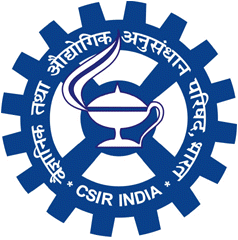Treatments Focus
Drugs to Avoid at Any Cost

Drugs are medications used to treat an illness with or without a doctor’s prescription (over-the-counter).
Over-the-counter (OTC) drugs can be bought at a medical store, ranging from acne medicines to weight loss products. OTC are usually bought for minor problems.
Current advances in pharmacogenomic studies help doctors to avoid certain drugs and to maximise patient safety during the treatment. This is done by closely understanding an individual’s gene information and how their body responds to certain drugs.
Common classes of OTC medicines
These include:
- Pain killers (Acetaminophen and ibuprofen)
- Cough suppressants
- Antihistamine medicines for common cold and other allergies
- Anti-inflammatory drugs for aches, pains and headaches
- Decongestants (Oral or nasal sprays) to clear a runny nose
- Medicines for stomach upset (Diarrhea, constipation)
- Medicines for nausea and vomiting
- Medicines for skin rashes and itching
- Acne medicines
- Heartburn (Acidity)
- Motion sickness pills
Risks of OTC medicines
Although OTC medicines help treat common minor health problems, they also create unnecessary and unpleasant effects. These are called as adverse reactions.
The adverse reactions of the medicine on the body are influenced by various factors, for example the type of food ingested along with medicine, etc.
There are different types of adverse reactions:
- Side effects
- Drug-drug interactions
- Food-drug interactions
- Allergic reactions
People with specific health conditions should be careful when using OTC medicines.
Healthy adults who use OTC medicines occasionally tend to experience side effects at a lower level. However, some are at higher risk than others. These include young children, older adults, and people with existing health issues (who take more than one type of medicine).
Individuals with any of the following conditions are at a higher risk:
- Asthma
- Bleeding disorders
- Blood clotting disorders
- Diabetes
- High blood pressure
- Thyroid issue
- Epilepsy (seizures/fits)
- Weakened immunity system
- Heart disease
- Liver problems
- Kidney problems
- Arthritis
- Psychiatric issues
Adverse Drug Reactions Examples
These can include the following:
- Rashes
- Jaundice
- Anemia
- Kidney damage
- Nerve injuries that may impair vision or hearing
- A decrease in white blood cell count
Misuse of OTC medications
While OTC medicines appear to be safe to use and harmless. Inappropriate usage, or the drug label instructions about the recommended dosage is not followed, can lead to a risk of misuse, abuse, and addiction.
Sometimes, OTC drug addiction can result in showing signs such as confusion, irritability, agitation, anxiety, and mood changes.
Some of the commonly abused medicines include:
- Depressants (include sedatives, tranquilizers, and hypnotics) – to treat anxiety, panic, acute stress reactions, and sleep disorders
- Opioid and Morphine derivatives – prescribed for pain relief
- Stimulants – to treat attention-deficit hyperactivity disorder (ADHD) and narcolepsy—uncontrollable episodes of deep sleep
Drugs to avoid
Some of the drugs you should avoid are:
- Antibiotics and antimalarials
- Beta-blockers – used to treat the heart
- Drugs used in neurology and psychiatry
Dizziness or lightheadedness, or unsteadiness
Nausea
Vomiting
Headache
FAQ's :
References:
- Misuse of Prescription Drugs: Vital Questions and Answers for Parents. Department of health. https://www.health.ny.gov/publications/1064/ Accessed on 15-07-2022
- Over-the-counter medicines. MedlinePlus. https://medlineplus.gov/ency/article/002208.htm Accessed on 15-07-2022
- Over-the-Counter (OTC) Medications. Drugs.com. https://www.drugs.com/otc/ Accessed on 15-07-2022
- OTC Medicines: Know Your Risks and Reduce Them. Familydoctor.org. https://familydoctor.org/otc-medicines-know-your-risks-and-reduce-them/ Accessed on 15-07-2022
- Drug Reactions. MedlinePlus. https://medlineplus.gov/drugreactions.html Accessed on 15-07-2022
- Commonly Abused Prescription Drugs. National Institute of Drug Abuse. https://nida.nih.gov/sites/default/files/rx_drugs_placemat_508c_10052011.pdf Accessed on 15-07-2022
Related Articles
Book an Appointment to understand how GenepoweRx can help you in treating
Drugs to Avoid at Any Cost
Meet The Doctors
Dr Kalyan Uppaluri
Dr Hima Challa
Your genetics … Your Test ... Your Health Success
It’s always the word of mouth that’s the best advice. Here are some of our…


Our Partners
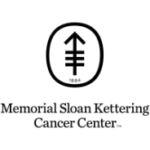
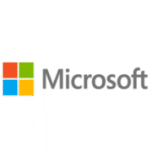
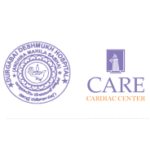

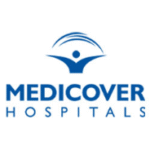
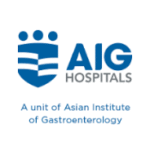
Professional Partnerships
Government Association
